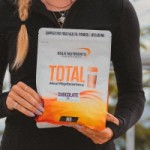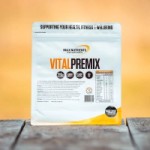Making a Meal of It: Meal Replacements for Your Lifestyle

A meal replacement is one weapon in your fitness arsenal
We say this in pretty much all of our blogs, because it’s the truth and it matters. No supplement will do all of your hard work for you. Supplements can help your healthy lifestyle, but you’re the one doing the work.
Be wary of any organisation which makes outrageous claims about its supplements, like losing 10kg in 10 days, or gaining 5kg of lean muscle in just 5 weeks! We don’t do that, and we never will.
As with all lifestyle changes, make sure you check with your doctor or health practitioner before making dramatic changes to your diet or exercise plan. Meal replacements generally aren’t suitable for pregnant people, people who are recovering from eating disorders and people with diabetes should also check before starting on meal replacements.
But for most people, a meal replacement can be one arrow in your quiver of health and fitness, something that assists you to live a healthier life.

The science of meal replacements
While meal replacements can be convenient for people who find one of their meals isn’t going to be a wholesome choice, for the main part, science has looked at how meal replacements can support people looking to lose weight.
Generally, studies have shown that meal replacement shakes and powder comes out on top because they help by being:
- Easy to consume
- Easy to control your portion size
- Easy to stick to your healthy eating plan
A 2010 study published in Nutrition found that “meal replacement diet plans have been demonstrated to provide safe, effective, sustainable weight loss, and have also been shown to yield significant improvements in health outcomes,” they wrote, adding that meal replacements that are rich in nutrients and portion-controlled are a “strategic tool” in a world that’s filled with high-fat, empty-calorie convenience foods.
The authors continued to say that the sheer convenience of meal replacements makes it easier for people to stick with their healthy eating plan, even when their life is challenging in other ways. “Better adherence to the diet using meal replacements has been shown over both the short-term and long-term as well as among subgroups of individuals, such as those with type 2 diabetes, who are often challenging in terms of compliance and achievement of weight loss.”
And there are other benefits, too, as meal replacements tend to help with immediate, robust weight loss, and for helping to achieve other health improvements like a reduction of inflammation and oxidative stress – which they say are two key factors underlying most chronic diseases.
And meal replacement shakes make portion control a breeze, according to Andrew Shao, author of “Role of Meal Replacements on Weight Management, Health, and Nutrition” in 2016.
He says that liquid meal replacements are considered “among the most effective and consistent, particularly if combined with other efforts to encourage consumption of high-nutrient-dense, low-energy-dense foods” – in other words, meal replacement shakes and efforts to eat whole foods which are full of nutrients but low in empty calories are proven to help with sticking to a portion-controlled diet.
Meanwhile, this 2020 report from an Australian study from Public Health Research & Practice found that meal replacements are currently underused in weight loss management.
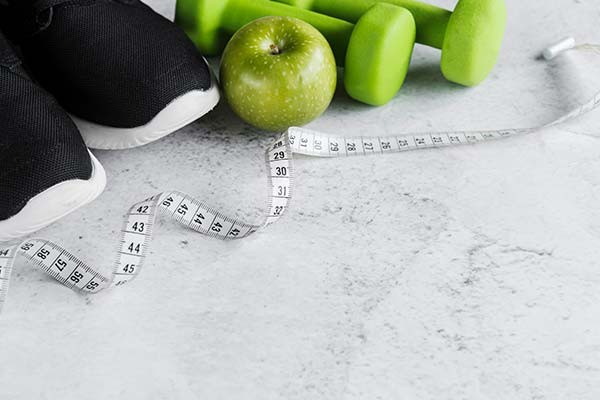
Meal replacement shakes make the news
Beyond the peer-reviewed journals, meal replacement shakes for weight loss also make the general news.
In 2018, the ABC reported that meal replacement shakes worked when combined with a low-calorie diet.
"The evidence shows that in the short term, meal replacements lead to greater weight loss compared to regular low-calorie diets, where you have to monitor kilojoules every day," Professor Collins told the ABC.
“When it comes to using meal replacements over a 12-month period, research shows they are equally as effective in achieving weight loss as regular low kilojoule diets without meal replacements. ‘The fact that there's no difference means that if [meal replacements] work for you and it's a way for you to help manage your appetite and kilojoule level … then go ahead.’”
What to look for in your meal replacement shake
Not all meal replacements are created equal. Healthline recommends you look for a powder (which becomes your shake when mixed with water) that contains macronutrients and micronutrients, including:
- Protein
- Fibre
- Essential vitamins and minerals
“For example, many commercial shakes are a good source of nutrients such as calcium, potassium, iron and vitamin D, which many people are lacking in their diets,” Bell says.
And one of the most important macros for weight loss (and muscle growth) is protein. Bell continues, reporting that a meal replacement shake with a high protein content can help with:
- Greater satisfaction with your diet
- Helps consume fewer calories throughout the day
- Fewer cravings
- Curbs the desire to snack late at night (a notorious time for bad food choices).
“Furthermore, high-protein diets have been associated with other benefits, such as increased lean body mass, reduced body fat, less belly fat and improved weight maintenance,” Bell says.
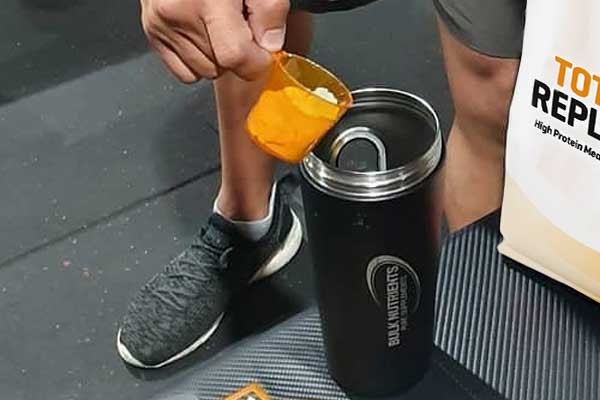
What else do you need to do?
Remember that your meal replacement shake replaces one meal only. Outside of that, you need to make good choices with your remaining meals.
And general advice which will help anyone is to drink plenty of water, make sure there are plenty of sources of nutritious, whole foods in your diet (think fruits, vegetables, nuts and whole grains) and get plenty of sleep.
The benefits of Bulk Nutrients’ meal replacement shake
When it comes to our Meal Replacements, and all of our products, we don’t skimp on quality.
Our Total Meal Replacement is a 2:1 ratio of protein to carbs. And our protein source is the same high-quality you’ll find in our Whey Protein Isolate, Whey Protein Concentrate and Micellar Casein products.
Bulk Nutrients Meal Replacement is designed with the ratio of protein to satisfy your appetite until your next meal while carbs supply energy. Our Meal Replacement includes a digestive lactase enzyme, to support people who are sensitive to dairy.
We use soluble fibre from peas, which supports control of blood sugars and helps you feel full for longer.
Our Meal Replacement also contains wheatgrass, known for its ability to help reduce cholesterol and regulate blood sugar, according to Healthline.
We add Barley Grass, which the Oxidative Medicine and Cellular Longevity journal reports can support sleep, regulate blood pressure and help immunity.
Finally, we add medium-chain triglycerides (MCTs), easily-absorbed fat molecules which support appetite suppression.
Total Meal Replacement also includes a digestive/lactase enzyme which assists those sensitive to dairy issues and it comes in your choice of Vanilla Caramel or Chocolate flavours.
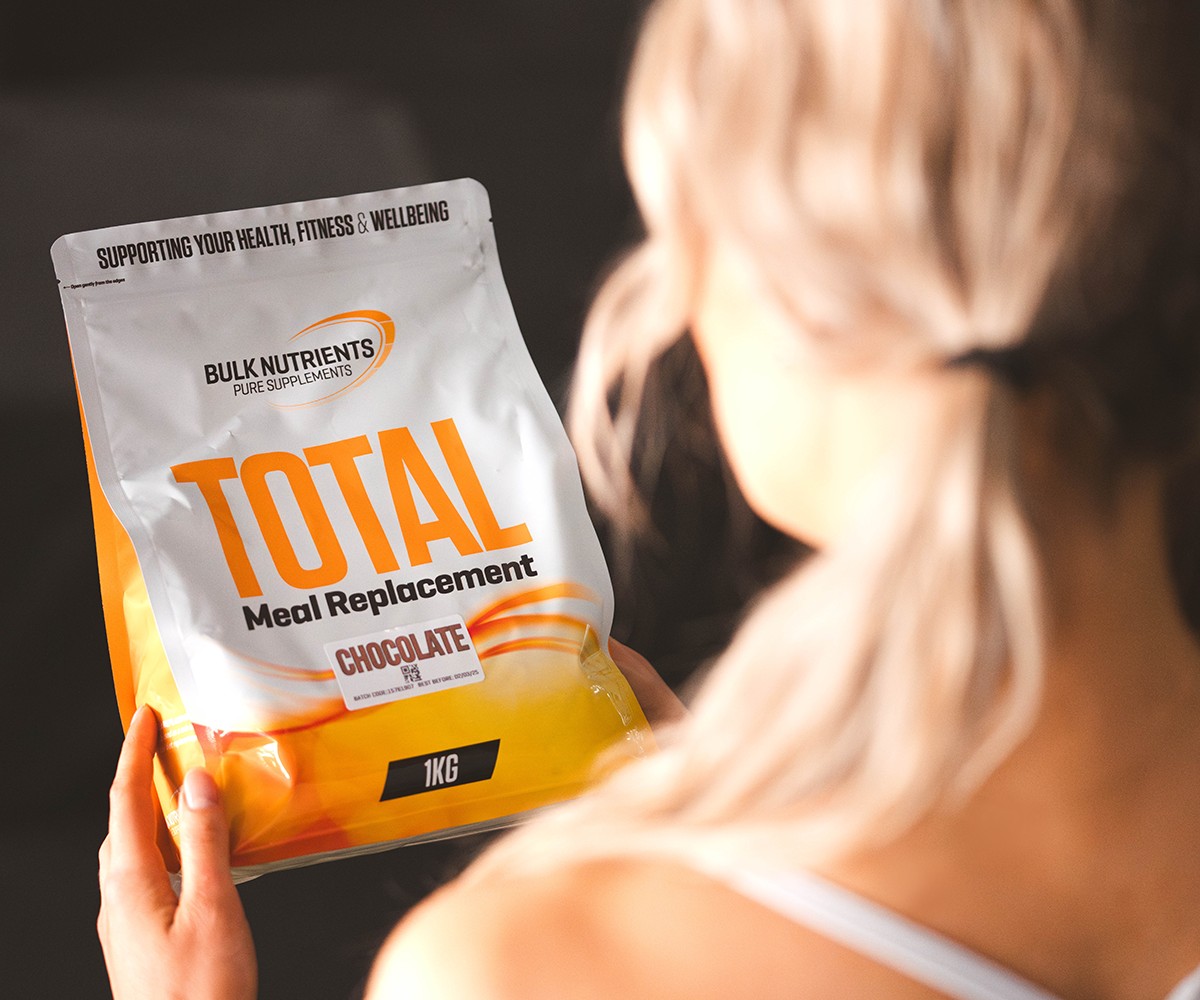
DIY meal replacement
While our Meal Replacements can’t be beaten in terms of convenience – simply mix with water for your complete, nutritionally balanced meal – you can also create your own do it yourself meal replacement shake.
Blend protein powder, oats, vital pre mix, fruit and a spoonful of your favourite nut butter with water for a quick, easy and satisfying meal that will stop you from reaching for something sweet.
We’re here for you
Contact us for any further information about Meal Replacements, or to find out how our supplements can support you in reaching your goals.
Call us on +61 3 6266 4725, email info@bulknutrients.com.au, chat with us in the chat button on the bottom right corner of your screen or use our online contact form.
References:
- Bell, B., 2017. Can Meal Replacement Shakes Help You Lose Weight?. [online] Healthline. Available at: https://www.healthline.com/nutrition/meal-replacement-shakes#section2.
- Davis, L., et al, 2010., “Efficacy Of A Meal Replacement Diet Plan Compared To A Food-Based Diet Plan After A Period Of Weight Loss And Weight Maintenance: A Randomized Controlled Trial”, Nutrition, [online] Available at: https://www.ncbi.nlm.nih.gov/pmc/articles/PMC2851659/.
- Link, R., 2018., 7 Evidence-Based Benefits of Wheatgrass [online] Healthline. Available at: https://www.healthline.com/nutrition/wheatgrass-benefits.
- McDermott, A., 2017. What Is Konjac? Uses, Benefits, And Side Effects. [online] Healthline. Available at: https://www.healthline.com/health/konjac#benefits.
- McGill, B., et al, 2020. Meal Replacement Soups And Shakes: Do They Have A Place In Public Health Practice To Manage Weight Loss?. [online] Public Health Research and Practice. Available at: https://www.phrp.com.au/issues/march-2021-volume-31-issue-1/meal-replacement-soups-and-shakes-do-they-have-a-place-in-public-health-practice-to-manage-weight-loss/.
- Shao, A., 2016. Role Of Meal Replacements On Weight Management, Health And Nutrition. [online] IntechOpen. Available at: https://www.intechopen.com/books/superfood-and-functional-food-an-overview-of-their-processing-and-utilization/role-of-meal-replacements-on-weight-management-health-and-nutrition.
- Zeng, Y. et. al., 2018. Preventive And Therapeutic Role Of Functional Ingredients Of Barley Grass For Chronic Diseases In Human Being. [online] Oxidative Medicine and Cellular Longevity. Available at: https://www.ncbi.nlm.nih.gov/pmc/articles/PMC5904770/.
- www.heart.org. 2019. Know The Flax (And The Chia): A Little Seed May Be What Your Diet Needs. [online] Available at: https://www.heart.org/en/news/2019/07/19/know-the-flax-and-the-chia-a-little-seed-may-be-what-your-diet-needs.
